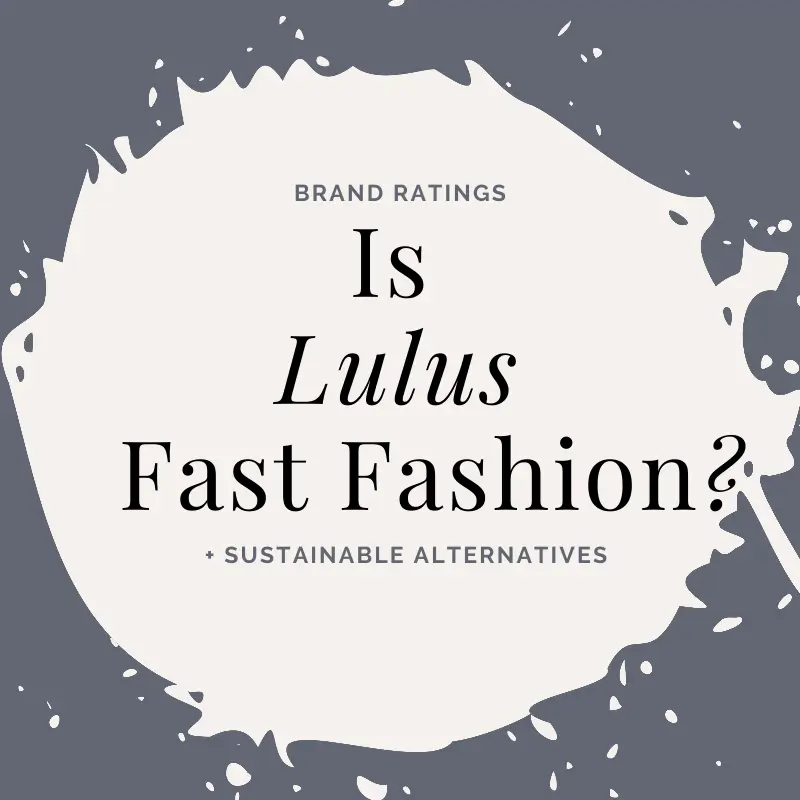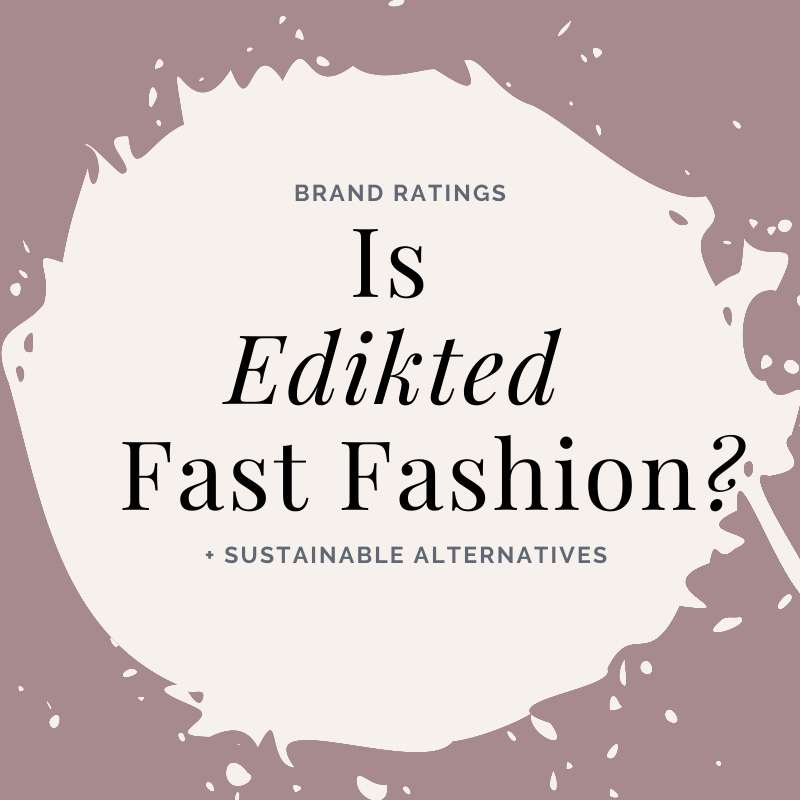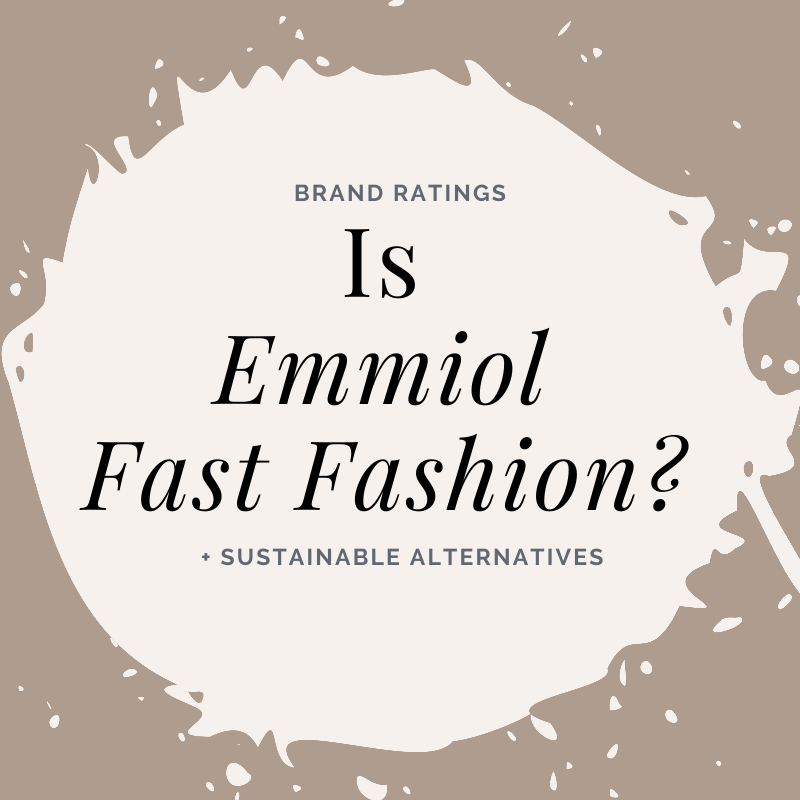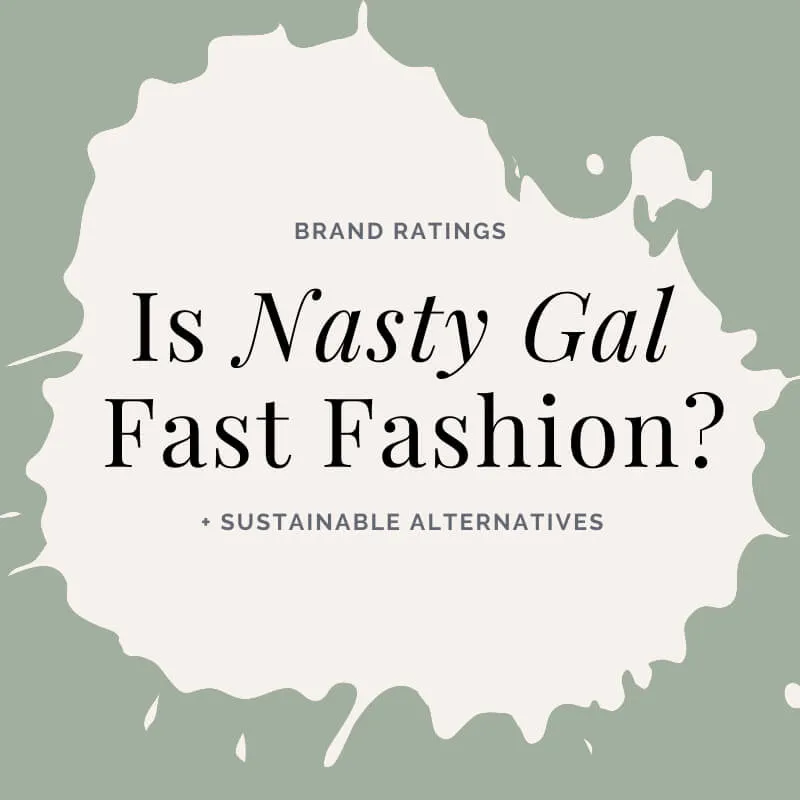
Nasty Gal is an American fashion retailer creating women’s clothes and accessories. The brand launched in 2006 by founder Sophie Amoruso Nasty Gal was 2006, and in 2012 Nasty Gal was named “Fastest Growing Retailer. Sophie later stepped down as CEO in 2015.
In 2016, the brand filed for bankruptcy, and in 2017 was bought by UK fast fashion retail giant Boohoo Group plc which still owns the company.
Ecothes Opinion: Overall Sustainability
Score
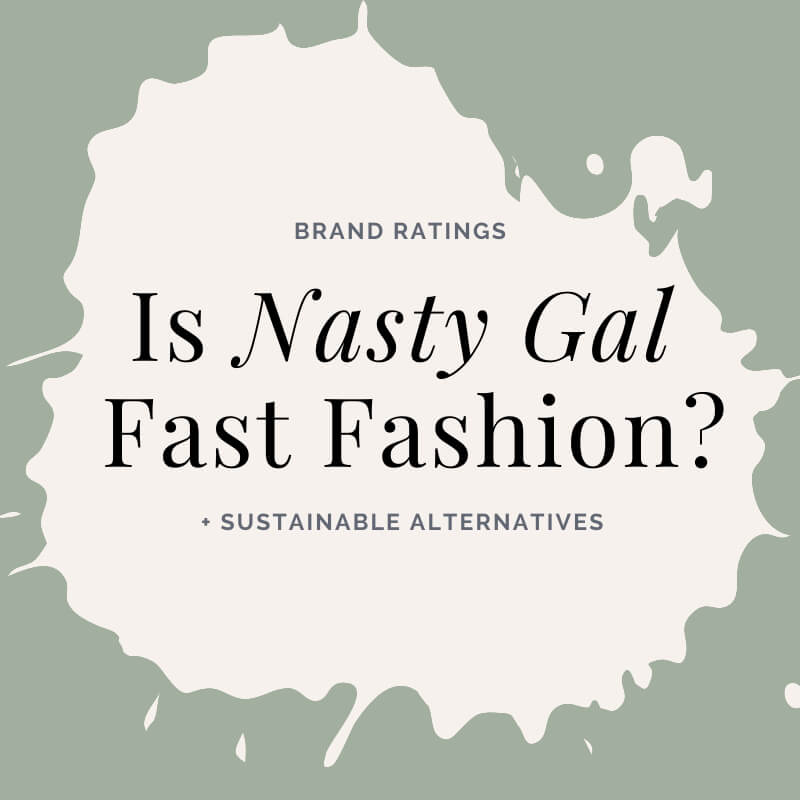
Is Nasty Gal Fast Fashion?
While Nasty Gal originally started in 2006 as an eBay shop selling second-hand, vintage-inspired clothing, today, Nasty Gal has grown to be part of one of the biggest fast-fashion retailers in the world (Boohoo Group).
We characterize Nasty Gal as a fast-fashion brand due to the large number of clothes the brand stocks and the fast-changing styles of clothing the brand produces. In addition, these clothes are often poor-quality materials and are designed to be sold at low prices.
What Materials Does Nasty Gal Use?
The majority of the materials Nasty Gal uses aren’t considered as eco-friendly or sustainable as they could b, with polyester and cotton being the most used materials across Nasty Gals clothing.
Nasty Gal uses vast quantities of cotton, which is notoriously land-intensive to grow. In addition, it requires high levels of irrigation and pesticides, which deplete the soil and can cause the leaching of chemicals into waterways. Unregulated cotton farming is also associated with forced and child labor during the farming and production of cotton products.
Nasty Gal is a member of the Better Cotton Initiative, a non-profit that educates farmers on sustainability and regulates cotton farming and labor. However, Nasty Gal cannot trace BCI cotton to final products and currently only source 10% of their cotton through BCI.
Nasty Gal states that by 2025, “all polyester and cotton will be recycled or more sustainably sourced”; however, there are no metrics or figures on what percentage they are currently sourcing, so until proven, this is an empty statement.
The brand does have a small collection of products containing recycled materials and organic cotton; however, this is a small portion of the whole collection.
Is Nasty Gal Carbon Neutral?
No Nasty Gal is not a carbon-neutral brand. Nasty Gal’s parent company Boohoo group specify they have conducted a carbon emissions calculation for its operations and will create carbon goals around this. However, the group does not disclose the value of its carbon footprint or the company’s methods to tackle and reduce its carbon emissions.
Boohoo group discloses they want to achieve a 52% reduction in emissions relative to our growth by 2030 but do not indicate where they are relative to this goal.
In the future, it would be an improvement to see companies such as Nasty Gal and Boohoo disclosing their carbon emissions and a clear, transparent plan on how it will reduce emissions.
Where are Nasty Gal’s Clothes Made?
While Nasty Gal does not disclose suppliers on its website, In 2021, Boohoo group (parent company of Nasty Gal) revealed the complete list of tier 1 global suppliers for the first time, which you can access here. The majority of suppliers are based in China, India, and Turkey.
However, Nasty Gal’s parent company doesn’t disclose any information around the wages or working conditions of these factories or whether they are regularly auditing these suppliers and the outcome of these audits.
Boohoo group Nasty Gal’s parent company has also been investigated into violations into forced labor at Boohoo suppliers in the United Kingdom and beyond.
Despite disclosing its suppliers, Boohoo group does not do enough to ensure fair worker treatment across its supply chains and has scored a low score of 20% in the Fashion Transparency Index 2021.
Is Nasty Gal Cruelty-Free?
Nasty Gal doesn’t specify its animal regulations policy. However, the brand is not entirely vegan as it includes the use of real leather in some of its clothing.
Sustainable Alternatives to Nasty Gal
Below we have rounded up a list of brands similar to Nasty Gal, who are using sustainable materials and ensuring fair and ethical production.
1. Whimsy + Row
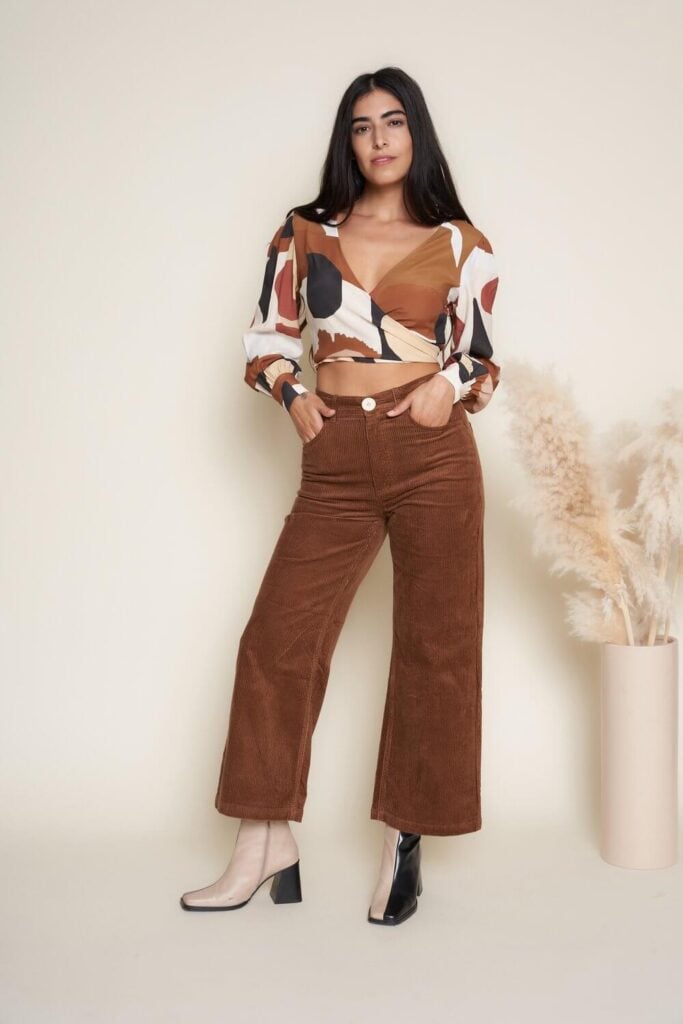
2. For Days
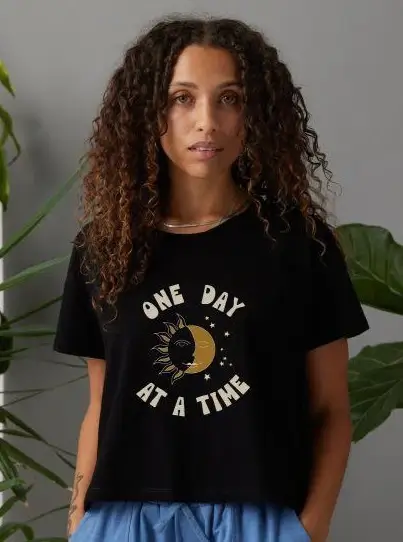
3. Kotn
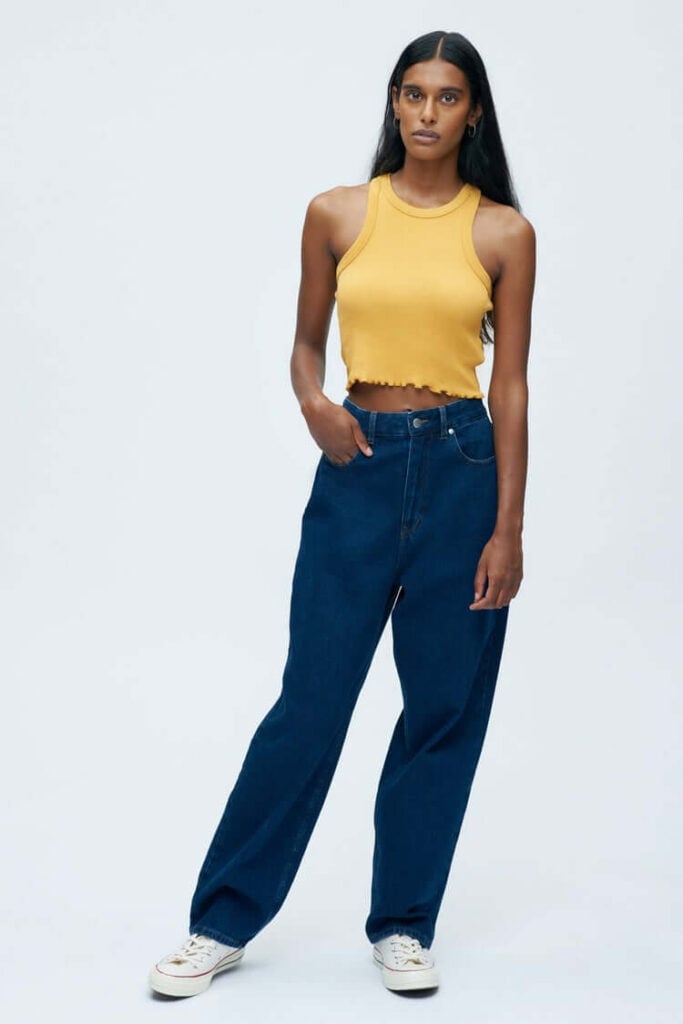
4. Sézane

5. Warp + Weft
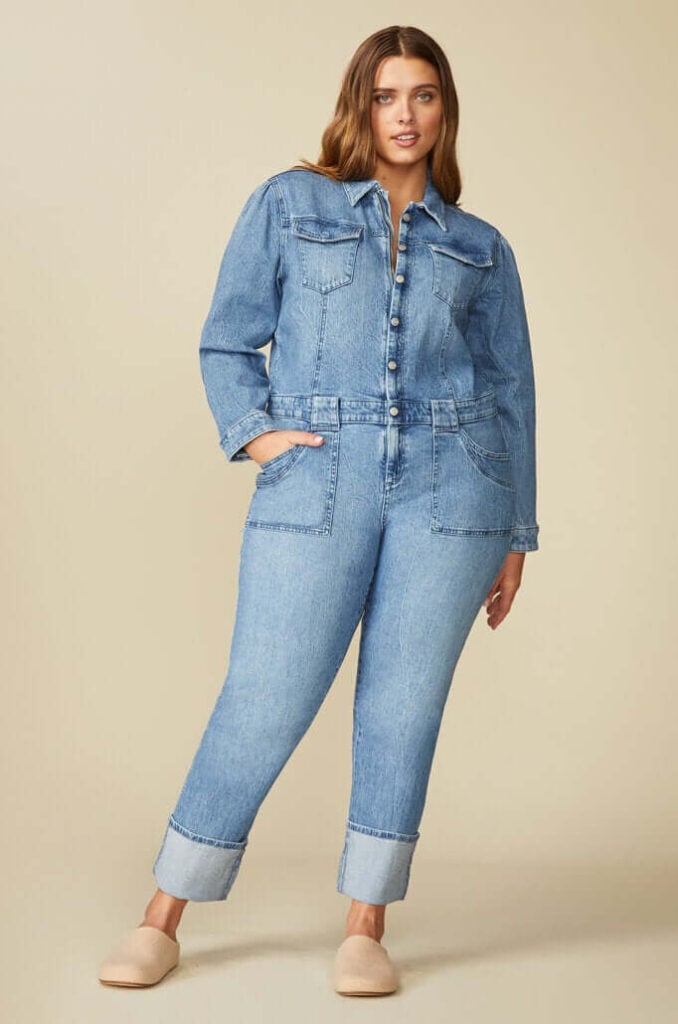
We hope you’ve enjoyed the article, and have the information to make an informed decision on Nasty Gals ethics.
We recommend you also take a look at our ratings of other brands including Free people, Madewell, Zaful, Express, COS, and Uniqlo. Or, check out the worst fast fashion brands we’re avoiding, here.
If you are looking to shop more sustainably and support ethical fashion brands, take a look at our guides on sustainable activewear, sustainable sneakers and more on our homepage.

